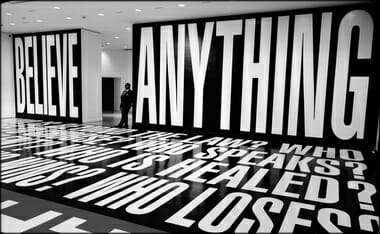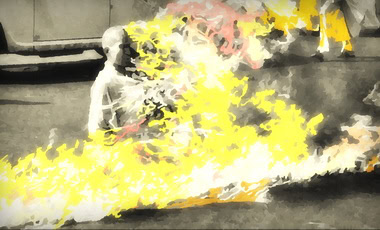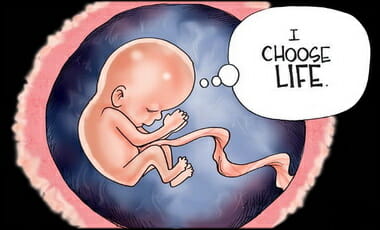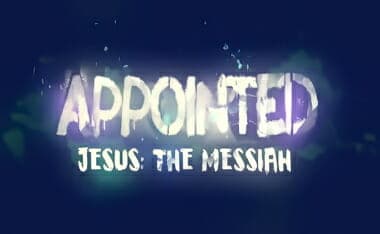Originally Posted June 2017
(fixed most links and replaced bad media)
The reason for this page: Below are three posts combined into ONE LONG POST… sorry. In this post you will find all the information to refute and respond to the completely bogus stat Democrats use about the “gender Wage Gap.” This will be a permanent page found tucked away in the “bar” across the top of my blog. IT HAS EVERYTHING for someone who has never heard a counter to this idea, or for someone who “knows it” but is looking for specifics. Enjoy.
This update is with thanks to MRCTV Blogs:
Progressive feminists have labeled today “Equal Pay Day” and have allied themselves with the White House and Democratic lawmakers. The whole theory of the “gender wage gap” rests on this study by none other than The Institute for Women’s Policy Research. The study claims that, when considering every median income for all full time annual workers, women make 21.7 percent less, or more popularly worded, 78 cents for every dollar a man earns.
But, the Independent Women’s Forum calls both the day and the gap “fictitious”:
“Feminist groups and Democratic lawmakers call today Equal Pay Day, a fictitious holiday that’s premised on the notion that the workplace is openly hostile toward women. What’s more it’s a Trojan horse for horrible policy. The statistical difference between women and men’s average earnings isn’t driven by widespread sexism, but largely from different choices men and women make throughout our lives. The Administration and its allies know the wage gap statistic is grossly misleading; in fact, last year the White House conceded the figure is flawed, yet continues to regurgitate it again this year,” said Sabrina Schaeffer, Independent Women’s Forum executive director.
‘If I said 77 cents was equal pay for equal work, then I completely misspoke,’ and apologized, ‘I certainly wouldn’t have meant to say that,” says White House official Betsey Stevenson.
“The White House admitted what IWF has stated all along – that when you control for a number of variables that impact pay – the pay gap shrinks considerably, nearly disappearing.
As Mark Twain said, “Facts are stubborn, but statistics are more pliable.” The 77 percent number is merely an average that compares the salaries of all men and women with full-time jobs but does not compare similar jobs. It does not take into account, for example, that more men choose to be engineers and more women choose to be social workers. It also doesn’t account for women taking time out of the workforce and men putting in longer hours.
The U.S. Department of Labor found that, when educational and career choices factor into the equation, women make 94 percent of men bring home. Childless urban women actually make more than men in all of these major cities. Pew Research also notes that there is a big gender gap in colleges and with college graduates, favoring women.
Video from NewsBusters ~ Alex Castellanos ended up
writing a response to his above “tiff” with Maddow
This is partly an import from a previous post dealing with this topic via my old blog, and partly an update. In my original post entitle, Glass Ceilings, Veteran benefits, and Other Liberal Mantras, I chronicled the following:
The Glass Ceiling
President Clinton said that women make .73 cents on every man’s dollar. He used this as a campaign issue to try and smear Republicans. Kerry said that women make .76 cents on every man’s dollar, and likewise used this stat as a political smear. The question then is this, are these two persons correct?
YES! If you compare all men to all women, then yes, there is a disparage. This stat doesn’t take into account a few things. It doesn’t consider the fact that women tend to choose the humanities when entering college and men seem to choose the hard sciences. So by choice women tend to choose professions that pay less. Not only that, when you compare Oranges to Oranges, you get something much different than expected, or that we would expect from the liberal side of things. If a woman and a man have had the same level of education and have been on the same job for an equal amount of time, the woman makes $1,005 while a man makes $1,000, a difference of $5 dollars every thousand dollars a man earns.
So part of the problem — exemplified by this article in THE NEW YORK TIME’S by a woman Medical Doctor — is the amount of time put into the career versus a male counterpart:
…But the productivity of the doctors currently practicing is also an important factor. About 30 percent of doctors in the United States are female, and women received 48 percent of the medical degrees awarded in 2010. But their productivity doesn’t match that of men. In a 2006 survey by the American Medical Association and the Association of American Medical Colleges, even full-time female doctors reported working on average 4.5 fewer hours each week and seeing fewer patients than their male colleagues. The American Academy of Pediatrics estimates that 71 percent of female pediatricians take extended leave at some point — five times higher than the percentage for male pediatricians.
This gap is especially problematic because women are more likely to go into primary care fields — where the doctor shortage is most pronounced — than men are. Today 53 percent of family practice residents, 63 percent of pediatric residents and nearly 80 percent of obstetrics and gynecology residents are female. In the low-income areas that lack primary and prenatal care, there are more emergency room visits, more preventable hospitalizations and more patients who die of treatable conditions. Foreign doctors emigrate to the United States to help fill these positions, but this drains their native countries of desperately needed medical care.
If medical training were available in infinite supply, it wouldn’t matter how many doctors worked part time or quit, because there would always be new graduates to fill their spots. But medical schools can only afford to accept a fraction of the students who apply…
Continuing with the medical profession example, THE LOS ANGELES TIMES [partly] correctly pointed out that many women look for these lower paying jobs because they allow for greater (family rearing) flexibility:
…The answer, they speculate, is that women are choosing lower-paying jobs on purpose because they offer greater flexibility in hours and are generally more family-friendly. The researchers acknowledge they don’t have the data to prove that this is the case, but the data they do have is consistent with this theory.
If so, they say, that would be a victory for women (and even men.) Studies show that many doctors are burned out and would rather take jobs that allow them to have a good quality of life. Now — thanks in large part to the growing ranks of female doctors — such jobs are available. They just come with lower salaries.
“Instead of being penalized because of their gender, female physicians may be seeking out employment arrangements that compensate them in other — nonfinancial — ways, and more employers may be beginning to offer such arrangements,” the researchers wrote….
Click to ENLARGE
More HERE
…..Thomas Sowell is the most well written on this subject. In fact, in his book, ECONOMIC FACTS AND FALLACIES, he devotes a whole chapter to this topic. In one area he points the following out, and keep in mind that in most countries mining or other hard-labor jobs are much more the norm than in America:
…various countries’ economies, there are still particular industries today where considerable physical strength remains a requirement. Women are obviously not as likely to work in such fields as men are— and some of these are fields with jobs that pay more than the national average. While women have been 74 percent of what the U.S. Census Bureau classifies as “clerical and kindred workers,” they have been less than 5 percent of “transport equipment operatives.” In other words, women are far more likely to be sitting behind a desk than to be sitting behind the steering wheel of an eighteen-wheel truck. Women are also less than 4 percent of the workers in “construction, extraction, and maintenance.” They are less than 3 percent of construction workers or loggers, less than 2 percent of roofers or masons and less than one percent of the mechanics and technicians who service heavy vehicles arid mobile equipment.
Such occupational distributions have obvious economic implications, since miners earn nearly double the income of office clerks when both work full-time and year-round 20 There is still a premium paid for workers doing heavy physical work, as well as for hazardous work, which often overlaps work requiring physical strength. While men are 54 percent of the labor force, they are 92 percent of the job-related deaths.
He goes on to point out that this volunteerism of choices continues onto Ph.D.s,
Given the asymmetrical effects of career obsolescence on women and men, it is hardly surprising that women tend to work in fields with lower rates of obsolescence— as teachers and librarians, for example, rather than as computer engineers or tax accountants. Even as the proportion of women receiving Ph.D.s rose dramatically from the 1970s on, male-female differences in the fields of specialization remained large. As of 2005, for example, women received more than 60 percent of the doctorates in education but less than 20 percent of the doctorates in engineering.
He then goes on to point out that do to life choices based on being close to family [kids], and choices made around work and family:
The most important reason why women earn less than men is not that they are paid less for doing the very same work but that they are distributed differently among jobs and have fewer hours and less continuity in the labor force. Among college-educated, never-married individuals with no children who worked fill-time and were from 40 to 64 years old— that is, beyond the child-bearing years— men averaged $40,000 a year in income, while women averaged $47,000.30 But, despite the fact that women in this category earned more than men in the same category, gross income differences in favor of men continue to reflect differences in work patterns between the sexes, so that women and men are not in the same categories to the same extent.
Even women who have graduated from top-level universities like Harvard and Yale have not worked full-time, or worked at all, to the same extent that male graduates of these same institutions have. Among Yale alumni in their forties, “only 56 percent of the women still worked, compared with 90 percent of the men,” according to the New York Times. It was much the same story at Harvard:
A 2001 survey of Harvard Business School graduates found that 31 percent of the women from the classes of 1981, 1985 and 1991 who answered the survey worked only part time or on contract, and another 31 percent did not work at all, levels strikingly similar to the percentages of the Yale students interviewed who predicted they would stay at home or work part time in their 30’s and 40’s.
In fact, as of a few years ago, women make more of the enrollment statistics in college, but will, through life choices, spend less time on the job that they went to school for than their male counterparts. All this brings me full circle to a great article that updates the above via the Wall Street Journal. They point out that much of the emphasis on this are by special interest groups that want to fix the problem — in my mind’s eye — with outdated thinking that no longer fits the evidence. In a recent VIRAL article found at The Atlantic Monthly “WHY WOMEN STILL CAN’T HAVE IT ALL,” Anne-Marie Slaughter talks about the talent businesses lose due to their inflexibility of allowing women to juggle family and work via a work schedule that doesn’t force an “either-or” schedule on them. BECAUSE when forced into an either-or situation, women choose family. Its in their nature. Here she talks a bit about her column:
CAREER OR FAMILY – Anne-Marie Slaughter
Mona Charen, a favorite author of mine, columnist, and part of the Clare Booth Luce Institute (a conservative policy institute for women), comments on Slaughter’s article in her’s, “GROW UP: LIFE HAS TRADE-OFFS,” by agreeing with her that women were sold a lie. Both in the prevailing view by the left that counters women’s nature as well as statistical lies:
…Even with a supportive husband who was willing to “take on the lion’s share of parenting … (while) I was in Washington,” she found that she didn’t want to be away from her two teenaged sons, particularly when one was having trouble in school.
“Want” is the critical word here. Slaughter made a choice, as adults do. She writes, “I realized that I didn’t just need to go home. Deep down, I wanted to go home. I wanted to be able to spend time with my children in the last few years that they are likely to live at home, crucial years for their development into responsible, productive, happy, and caring adults.”
Slaughter’s wants mirror those of other women (high-earning and otherwise). A 2007 Pew survey found that among working mothers with children 17 and younger, fully 79 percent said that they would prefer part-time (60 percent) or zero (19 percent) work outside the home. Only 21 percent said they would choose full-time employment while their children were young. This was down from 32 percent who preferred to work full time in 1997.
Despite endless repetition by Democrats and feminists, the idea that women earn less than men for the same work is fiction. Single women without children earn just as much, and sometimes more, than comparably qualified young men. Women earn less (over their whole careers) because they choose to. And they choose to because they place more value on child rearing than on money or status.
A better feminist would applaud women for this and stress the incomparable contribution mothers make to society. Instead, feminists define progress as the “first” woman this or that and the degree to which a woman’s life parallels a man’s. Feminists have been missing what’s best about womanhood for decades…
This is much of the left’s “padded” thinking mind you! the WSJ’s article, titled: There Is No Male-Female Wage Gap: A study of single, childless urban workers between the ages of 22 and 30 found that women earned 8% more than men, is a great update to the above:
Tuesday is Equal Pay Day—so dubbed by the National Committee for Pay Equity, which represents feminist groups including the National Organization for Women, Feminist Majority, the National Council of Women’s Organizations and others. The day falls on April 12 because, according to feminist logic, women have to work that far into a calendar year before they earn what men already earned the year before.
In years past, feminist leaders marked the occasion by rallying outside the U.S. Capitol to decry the pernicious wage gap and call for government action to address systematic discrimination against women. This year will be relatively quiet. Perhaps feminists feel awkward protesting a liberal-dominated government—or perhaps they know that the recent economic downturn has exposed as ridiculous their claims that our economy is ruled by a sexist patriarchy.
The unemployment rate is consistently higher among men than among women. The Bureau of Labor Statistics reports that 9.3% of men over the age of 16 are currently out of work. The figure for women is 8.3%. Unemployment fell for both sexes over the past year, but labor force participation (the percentage of working age people employed) also dropped. The participation rate fell more among men (to 70.4% today from 71.4% in March 2010) than women (to 58.3% from 58.8%). That means much of the improvement in unemployment numbers comes from discouraged workers—particularly male ones—giving up their job searches entirely.
Men have been hit harder by this recession because they tend to work in fields like construction, manufacturing and trucking, which are disproportionately affected by bad economic conditions. Women cluster in more insulated occupations, such as teaching, health care and service industries.
Yet if you can accept that the job choices of men and women lead to different unemployment rates, then you shouldn’t be surprised by other differences—like differences in average pay.
Feminist hand-wringing about the wage gap relies on the assumption that the differences in average earnings stem from discrimination. Thus the mantra that women make only 77% of what men earn for equal work. But even a cursory review of the data proves this assumption false.
The Department of Labor’s Time Use survey shows that full-time working women spend an average of 8.01 hours per day on the job, compared to 8.75 hours for full-time working men. One would expect that someone who works 9% more would also earn more. This one fact alone accounts for more than a third of the wage gap.
Choice of occupation also plays an important role in earnings. While feminists suggest that women are coerced into lower-paying job sectors, most women know that something else is often at work. Women gravitate toward jobs with fewer risks, more comfortable conditions, regular hours, more personal fulfillment and greater flexibility. Simply put, many women—not all, but enough to have a big impact on the statistics—are willing to trade higher pay for other desirable job characteristics.
Men, by contrast, often take on jobs that involve physical labor, outdoor work, overnight shifts and dangerous conditions (which is also why men suffer the overwhelming majority of injuries and deaths at the workplace). They put up with these unpleasant factors so that they can earn more.
Recent studies have shown that the wage gap shrinks—or even reverses—when relevant factors are taken into account and comparisons are made between men and women in similar circumstances. In a 2010 study of single, childless urban workers between the ages of 22 and 30, the research firm Reach Advisors found that women earned an average of 8% more than their male counterparts. Given that women are outpacing men in educational attainment, and that our economy is increasingly geared toward knowledge-based jobs, it makes sense that women’s earnings are going up compared to men’s.
In a response to a reader in a previous blogpost on this subject, I pointed out that there are physiological differences between the sexes that are undeniable and that promote women making choices to pause a career and build a home life. Here is my response:
You should know that there is a hard wired difference between men and women, whether by evolutionary means or creative means. A most recent example is what wakes the sexes at night:
Psychologist Dr David Lewis said: ‘There is nothing more likely to leave you feeling drained and depressed than disturbed sleep, especially when this happens over several nights.
A graphic explaining the different sounds which will wake men and women
‘As this unique study shows while some sounds, for instance your partner coughing or snoring beside you, disturb men and women equally, other noises such as a howling wind cause men to be more disturbed than women.
‘Women are more likely to be disturbed by a crying baby.
‘These differing sensitivities may represent evolutionary differences that make women sensitive to sounds associated with a potential threat to their children while men are more finely tuned to disturbances posing a possible threat to the whole family.’
I could call my husband lazy, sexist and insensitive but his failure to hear a crying child while he’s sleeping might not be his fault at all. Researchers have actually found that women are hard-wired to wake up to the sound of a sobbing baby. A 2009 study by the British Mindlab sleeping lab found that a baby’s crying is the number one sound most likely to rouse a woman and didn’t even factor into the male top 10. Men were more likely to wake to the sounds of a car alarm, howling wind, or a buzzing fly.
This difference is what the market responds to. The fact that women typically WANT to be at home with their family MORE than the man… AND, women typically CHOOSE jobs that pay less. But free markets is not what the left is about, egalitarianism is.
 Below, Michael Medved deals with two issues from President Obama’s recent Executive Order “Payment Fairness Act” push through. He [Medved] deals first with the continuing distortion of Obama’s family history by Obama himself. Then he gets to the meat of the issue (followed by some of the WSJ article mentioned in the clip):
Below, Michael Medved deals with two issues from President Obama’s recent Executive Order “Payment Fairness Act” push through. He [Medved] deals first with the continuing distortion of Obama’s family history by Obama himself. Then he gets to the meat of the issue (followed by some of the WSJ article mentioned in the clip):
Here are excerpts from the WSJ article:
…In its annual report, “Highlights of Women’s Earnings in 2012,” the Bureau of Labor Statistics states that “In 2012, women who were full-time wage and salary workers had median usual weekly earnings of $691. On average in 2012, women made about 81% of the median earnings of male full-time wage and salary workers ($854).” Give or take a few percentage points, the BLS appears to support the president’s claim.
But every “full-time” worker, as the BLS notes, is not the same: Men were almost twice as likely as women to work more than 40 hours a week, and women almost twice as likely to work only 35 to 39 hours per week. Once that is taken into consideration, the pay gap begins to shrink. Women who worked a 40-hour week earned 88% of male earnings.
Then there is the issue of marriage and children. The BLS reports that single women who have never married earned 96% of men’s earnings in 2012.
The supposed pay gap appears when marriage and children enter the picture. Child care takes mothers out of the labor market, so when they return they have less work experience than similarly-aged males. Many working mothers seek jobs that provide greater flexibility, such as telecommuting or flexible hours. Not all jobs can be flexible, and all other things being equal, those which are will pay less than those that do not.
Education also matters. Even within groups with the same educational attainment, women often choose fields of study, such as sociology, liberal arts or psychology, that pay less in the labor market. Men are more likely to major in finance, accounting or engineering. And as the American Association of University Women reports, men are four times more likely to bargain over salaries once they enter the job market.
Risk is another factor. Nearly all the most dangerous occupations, such as loggers or iron workers, are majority male and 92% of work-related deaths in 2012 were to men. Dangerous jobs tend to pay higher salaries to attract workers. Also: Males are more likely to pursue occupations where compensation is risky from year to year, such as law and finance. Research shows that average pay in such jobs is higher to compensate for that risk.
While the BLS reports that full-time female workers earned 81% of full-time males, that is very different than saying that women earned 81% of what men earned for doing the same jobs, while working the same hours, with the same level of risk, with the same educational background and the same years of continuous, uninterrupted work experience, and assuming no gender differences in family roles like child care. In a more comprehensive study that controlled for most of these relevant variables simultaneously—such as that from economists June and Dave O’Neill for the American Enterprise Institute in 2012—nearly all of the 23% raw gender pay gap cited by Mr. Obama can be attributed to factors other than discrimination. The O’Neills conclude that, “labor market discrimination is unlikely to account for more than 5% but may not be present at all.”…
Again, and again, the Dems from the President on-down spread this lie! I will now add another post dealing with this myth, lie, political tactic. Below will be a few video/audio clips as well as The Wall Street Journal and Powerline posts/articles on the matter.
Professor Christiana Hoff Sommers was recently interviewed by Larry Elder explains this nonsense in an erudite and concise manner:
Powerline says that the President is in trouble when it can’t even fool CNN: AEI’s Mark Perry sets out the “analysis” proving pay discrimination at the White House here in a form even the folks at CNN can understand. If Obama can’t fool those who want to believe at CNN with this line, who ya gonna fool? Again, Powerline posts (10-20, 2012)Thomas Sowell’s response to the matter:
At the Hofstra University presidential debate this past Tuesday (I’m working from the WaPo transcript here), Candy Crowley called on Katherine Fenton to ask this groaner of a question: “In what new ways to you intend to rectify the inequalities in the workplace, specifically regarding females making only 72 percent of what their male counterparts earn?”
This is such an old canard I thought that Governor Romney might challenge the premise of the question. Equal pay for equal work is the law of the land, Katherine. The proposition that the statistical disparity in pay you mention results from employment discrimination has been examined and disproved many times over. The great Thomas Sowell addressed it in chapter 3 of Economic Facts and Fallacies (summarized in the video below). Katherine, the premise of your question falls into the category of “fallacy.”
What is truly scary is that everyone may know your pay at some point… this may be no-longer private:
The first bill President Obama signed into law was the Lily Ledbetter Fair Pay Act of 2009, but five years later, the White House is still talking about the gender wage-gap.
At a White House briefing on Wednesday, Betsey Stevenson, one of President Obama’s economic advisers, said female employees need to know how much their male colleagues earn, so they can tell if they’re being paid equally.
(Via The Lonely Conservative – now defunct ~ see To Love My Country for more) …The Washington Post & the Los Angeles Times slammed [the above] graphic put out by the White House as being sexist.
It pictures two women, one in a pink dress carrying a handbag, the other in an orange dress, and both are wearing oh-so-practical stilettos. This is exactly what working women wear to work every day, right? All those women who are lawyers, and doctors, and cashiers, and investment bankers, and biochemists, and nursing assistants and architects and engineers and cashiers at the Piggly Wiggly? Perhaps this is why Obama was so focused on dry-cleaning bills at the White House signing ceremony? This is just not great messaging or symbolism for a White House that wants to also focus on women in minimum wage jobs. It screams “Sex and the City,” not “9 to 5.”
Ouch!
It didn’t get much better for Senate Democrats. Republicans took a look at their payroll records and found they also have a wage inequality problem.
It turns out President Obama isn’t the only hypocritical Democrat, in fact Senate Democrats have their own problems when it comes to equal pay. We pulled the official payroll records of various offices and calculated the average pay for men and women in each office for the most recent 6 month period available. Since some employees only worked a portion of the six month period, we calculated how much each person was paid per day in order to give an accurate representation. Here’s what we found:
- Mark Udall pays women 85 cents for every dollar that a man makes.
- Mary Landrieu pays women 88 cents for every dollar that a man makes.
- Mark Begich pays women 82 cents for every dollar that a man makes.
- Mark Warner pays women 75 cents for every dollar that a man makes.
- Gary Peters pays women 67 cents for every dollar that a man makes.
That means on average, these five Democrats on the ballot in battleground states pay women in their office 79 cents for every dollar made by a male employee.





















